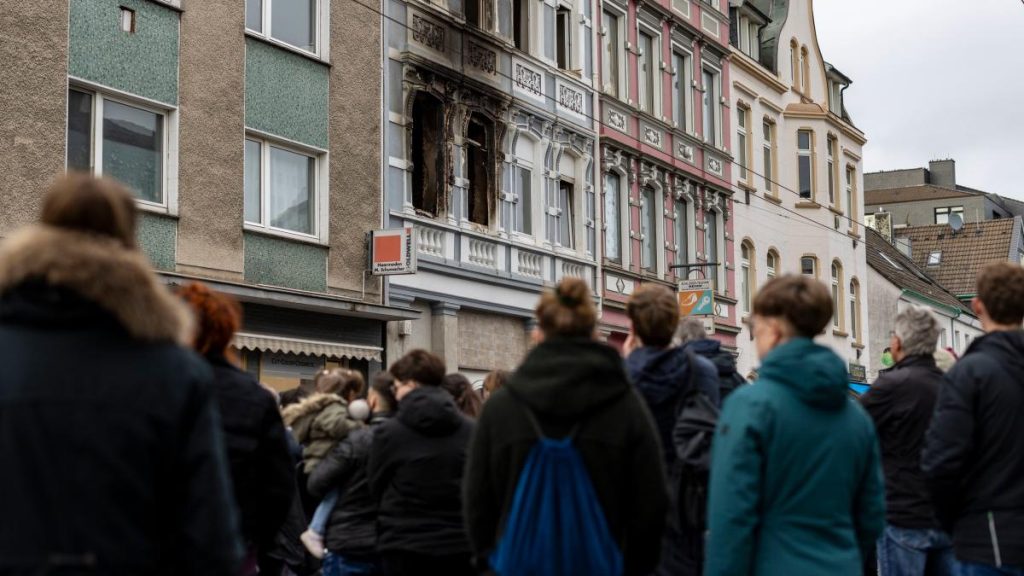Meliha and Emre stand on Grünewalder Strasse and looked across the street at the windows of the burnt-out, soot-blackened rooms. They expressed feeling sadness, insecurity, and fear following the fire that claimed the lives of a Turkish family living in Solingen. Nearly 200 people gathered for a memorial service, leaving flowers, candles, and teddy bears as symbols of their grief and solidarity. The police closed off the busy street for the gathering, which included Meliha and Emre, who live about a kilometer away and learned about the tragedy through Turkish media outlets.
The fire was deliberately set, with traces of an accelerant found in the stairwell, leading authorities to investigate the incident as a case of murder and attempted murder. Despite the lack of clear leads on potential suspects or motives, the State Prosecutor’s Office in Wuppertal stated that there were no indications of a xenophobic motive. However, the Chairman of the State Integration Council of North Rhine-Westphalia, Tayfun Keltek, strongly suggested that the attack may have had racist motivations. The incident evokes memories of the 1993 arson attack in Solingen, which claimed the lives of five young women in a Turkish family, leading to the conviction of four individuals with ties to the neo-Nazi scene.
The name Solingen is synonymous with the dark chapter of the 1993 arson attack and serves as a reminder of the challenges faced by migrants in Germany. The recent incident has led to discussions about a resurgence of xenophobic violence and political rhetoric targeting migrants and refugees. Attendees at the memorial service expressed concern about the rise of right-wing extremism and emphasized the importance of vigilance to prevent a repeat of past tragedies. Calls were made for a more inclusive and tolerant society, where individuals of all backgrounds can coexist peacefully.
Meliha, a second-generation Turkish-German, shared her experiences of not feeling fully accepted in German society, despite her contributions through education and employment. She expressed frustration at being perceived as a foreigner in her own country and emphasized the importance of addressing racism and discrimination. Her concerns were echoed by other community members who attended the memorial service to pay their respects to the victims of the tragic fire. The event highlighted the need for continued efforts to promote social cohesion and combat prejudice in German society.
The legacy of past acts of violence against migrants and minorities looms large over communities like Solingen, where the scars of historical traumas continue to affect residents. The solidarity shown at the memorial service serves as a reminder of the resilience and strength of those affected by such tragedies. As investigations into the recent fire continue, there is a renewed call for justice and accountability to prevent further acts of hatred and violence. The community stands united in condemning all forms of discrimination and reaffirming their commitment to building a more inclusive and compassionate society for all.


